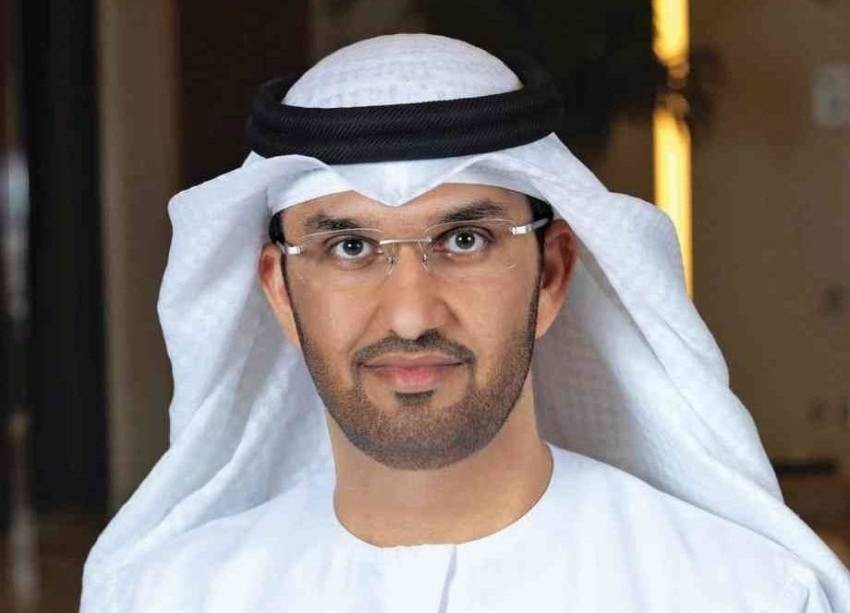Sultan bin Ahmed Al Jaber, Minister of Industry and Advanced Technology, and the UAE’s Special Envoy for Climate Change, confirmed that the contribution of renewable energy amounted to more than 80 of the total new production capacity of electricity during the past year, which is a clear indication that the transformation in the energy sector is proceeding with rapid steps. . His Excellency said in an article published by the Project Syndicate newspaper entitled A bold and realistic energy transition , Recent global events have made it clear that the immediate abandonment of the current energy system, before building a new system capable of meeting global needs, jeopardizes both economic growth and progress in climate action, and it also raises questions about our ability to achieve a just and equitable transition for all.” Scientific, economic and engineering facts, rapid implementation of solutions, in addition to a clear awareness of the challenges facing the transformation process, and to achieve this; We need a comprehensive approach that benefits from the experiences of all sectors and segments of society, including the expertise, capabilities and capabilities available in the current energy system.” Because of the Russian-Ukrainian conflict, which prompted various countries around the world to reassess their strategic energy needs.”
He stated that the lesson learned from this crisis is that governments should not adopt policies that lead to the withdrawal of investments from the oil and gas sector before securing suitable and viable alternatives, as this will result in counterproductive results that undermine energy security and negatively affect global economic stability. It also decreases the amount of funding available for a reasonable and intentional restructuring of the energy sector.
The UAE’s Special Envoy for Climate Change, the Minister of Industry and Advanced Technology, stated that global investments in renewable energy sources exceeded $365 billion last year, while total investment in energy storage technology, carbon capture, and the hydrogen sector value chain was $12 billion. This is, of course, insufficient to support the energy sector’s transformation, where the total investment required is estimated to be more than $25 billion.
In addition to securing the necessary financing, we must remember that the transformation process in the energy sector takes time and cannot happen at the touch of a button, and although wind and solar energy constituted the majority of total new capacity to generate electricity in 2021, it is still It constitutes only 4 of the world’s current energy mix, and with the demand for energy growing faster than ever, ensuring its security requires the c
He stated that we must make more efforts to reduce the impact of oil and gas on the climate, which necessitates intensifying cooperation, coordination, and close collaboration among producers, governments, and the private sector in order to make new energy production less emissions-intensive than previous production, which necessitates the formulation of supportive financial policies, including tax incentives, and increased operational efficiency. By encouraging the use of technology, pledging to reduce methane emissions and gas flaring, and increasing investments in carbon capture technologies.
His Excellency emphasised that this is, in essence, the UAE’s strategy to transforming the energy sector, which guarantees that it continues to satisfy the world’s present demands while investing in future energy systems. The UAE has three of the world’s largest solar power plants in one place, he added. It has invested in renewable energy projects in over 40 developed and developing nations, and expects to increase its portfolio of renewable energy projects to reach 100 gigatonnes of output capacity by 2030. We have invested in peaceful nuclear energy and are focusing on creating solid foundations for an integrated value chain for hydrogen, which is required to achieve climate neutrality.
While the UAE remains a dependable provider of the world’s least emissions-intensive oil and gas, we are seeking to lower it by an additional 25 by the end of 2030, he said.
He pointed out that as the first country in the Middle East and North Africa region to announce a strategic initiative in pursuit of climate neutrality by 2050, we are continuing to work to reduce emissions in all economic activities in the country, and established the first program in the region to capture, use and store carbon on an industrial scale. And the Abu Dhabi National Oil Company “ADNOC” is working to secure the electricity needs of its operations from peaceful nuclear and solar sources that are free of emissions. His Excellency stressed that with the approach of the twenty-seventh session of the Conference of the Parties this year, and as the UAE prepares to host the twenty-eighth session of the conference next year, We need to focus on practical solutions that contribute to enhancing energy security by ensuring access to sustainable supplies at affordable prices, and he explained that to implement the commitments of the Paris climate agreement, we need an inclusive dialogue on a realistic approach to the transformation of the energy sector with the participation of all relevant parties, including Governments, civil society representatives, scientists, the private sector, specialists and experts from the entire energy sector. Fruitful and rational straws about the practical aspects of reducing emissions while maintaining economic growth, without the participation of these experts.
His Excellency emphasised that achieving our goals by accelerating progress in climate action while maintaining economic growth and prosperity requires beginning actual work immediately, and we must always remember that our ultimate goal is to reduce emissions, not growth rates, progress, and development.

